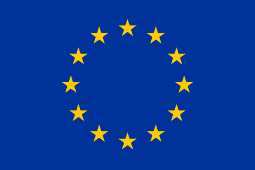Recent Articles
-
Expand Your Impact: The Power of Networking in Activism January 18, 2024
-
Activism and Self-Care: Balancing Passion with Well-Being January 13, 2024
-
Celebrate Every Victory: Small Wins on the Path to Change January 11, 2024
Tag Cloud
ELEVATE
Corporate Philanthropy Has Turned Into A Game of Smoke and Mirrors

Are They Giving Because They Care?
Or Are They Hiding Something?
Anand Giridharadas, writer, conference circuit veteran and former McKinsey consultant, has been exposed to business leaders’ efforts to take on active roles in solving social issues. While on the surface this may seem like a selfless act, done out of goodwill and a desire to help others, Giridharadas argues that these acts are actually self-serving and selfish. Rather than genuinely helping for positive change, business leaders are looking for some good publicity, a pat on the back and opportunities to push their own agendas.
Giridharadas discusses what he refers to as ‘MarketWorld’ - the area in which problems are solved by market forces. He believes this ‘MarketWorld’ allows for people to perceive sacrifice from a corporation, when in fact, their actions are not driven by the desire to do good. They serve their personal interests while manipulating the public eye into thinking they are 'good'. For example, a company who donates thousands of electronic equipment to schools in need is thought to be a major supporter of the underprivileged. However, beneath the surface, the same company is using this donation to fight against their recent tax hikes; tax hikes that would give even more funding to the same schools. On the surface, the company is portraying themselves as drivers of change by providing resources but in reality they are driving their own agendas to save money.
Between 1979 and 2017, we have experienced a 187% increase in corporate and individual givings. This rise in desire to ‘do good’ and help the less fortunate can be largely attributed to the need to pacify the people, misdirect them even, while major corporations are working towards a very different end game.
So what gives Anand Giridharadas the right to speak of the elite in such a way? Well, he is from the same world. The 37 year old journalist is cut from the same cloth, having graduated from Harvard, been launched into consulting with McKinsey, given two TED talks, having been a Henry Crown Fellow at the Aspen Institute, and now, being an editor at Time Magazine. He comments on these acts, because he's seen them go down first hand.
He has no qualms of the rich using their resources to help others, but simply challenges their motives. In his book Winners Take All: The Elite Charade of Changing the World, he argues that they are only happy to help so long as the results are a win-win. This immediately takes away from the selfless nature of a good deed.
What does it matter ‘why’ a company is acting philanthropically, as long as they are doing something to help others? Isn’t the end result the same, regardless of the motivating force?

According to Giridharadas, "the modest act of do-gooding abets harm-doing on a much bigger scale, the net effect of the do-gooding may be negative". He refers to Mark Zuckerberg’s increase in seemingly philanthropic deeds, as a cover up that later revealed Facebook’s data-privacy misdeeds. "If you took away all of the coverage that resulted from that moral do-gooding," he says, "I think the guy would have been busted by journalists and regulators, like, eight years ago." Major corporations are now using their social platforms to promote their good deeds, the ways they are helping better the world, solve social issues, and help those in need as a sort of smoke and mirrors magic trick.
Philanthropy today, in the eyes of Giridharadas, is a means of dousing the flames of public anger, preventing the public from taking action that would actually effect a positive change, making conditions overall better.
Though Giridharadas brings light on many corporate misdeeds and their efforts to de-escalate them through public do-gooding - he does have kind words for some plutocratists and their philanthropic work. For instance, he supports the work Bill Gates’s foundation has done in Africa, though he still does question the power that his wealth has given him over making decisions regarding public life.
While corporate business leaders and tech entrepreneurs have the financial ability to give to support their personal agendas, we have the responsibility to give with no strings attached. The efforts of the everyday person to reinvest in their communities can spark real change at the ground level. There are ways that you can give today to support the next generation of thought leaders.






